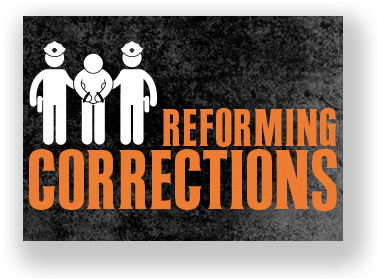We post news and comment on federal criminal justice issues, focused primarily on trial and post-conviction matters, legislative initiatives, and sentencing issues.
CRIMINAL JUSTICE AT THE DAWN OF A NEW CONGRESS
The 115th Congress opened yesterday, beginning another 2-year effort to pass some meaningful sentencing reform. And already, Sen. Charles Grassley (R-Iowa) has promised to renew his efforts to pass a bill.
 Senate Judiciary Committee Chairman Grassley plans to take up legislation to revamp U.S. sentencing laws and reform prisons soon after his panel clears the high-profile nominations from Donald Trump. A similar measure passed his committee overwhelmingly last year before stalling out in the face of opposition from law-and-order conservatives.
Senate Judiciary Committee Chairman Grassley plans to take up legislation to revamp U.S. sentencing laws and reform prisons soon after his panel clears the high-profile nominations from Donald Trump. A similar measure passed his committee overwhelmingly last year before stalling out in the face of opposition from law-and-order conservatives.
The committee will begin the year working through the attorney general and Supreme Court nominees, but criminal justice reform will be one of the legislative bills I plan to bring up early on,” he said in a statement. “It cleared the committee with a broad bipartisan majority in the last Congress, and I don’t expect that to change.
Grassley said he and Senate Minority Whip Dick Durbin (D-Illinois), will continue to try to line up support for a sentencing reform measure, while trying to convince the Trump administration of the need for the reforms. Politico said the new legislation isn’t expected to be substantially different than last year’s version.
As the new Congress opens, here’s the status of federal criminal justice
The number of people in American prisons and jails at the end of 2015 fell by more than 2% after rising slightly in 2014, according to numbers released last week by the Bureau of Justice Statistics. The total is 2,173,800, the lowest since 2004.
The jail and prison population shrank by 51,300 last year. State prisons accounted for 42% of that drop, followed by local jails (31 %) and federal prisons (27%). Drug offenders accounted for half of federal prisoners and 16 percent of state prisoners in 2015. The decrease in the federal prison population was largely due to shorter crack sentences authorized by the Fair Sentencing Act. President Obama only granted 163 commutations in 2015, accounting for a tiny share of the decrease.
 Supreme Court Chief Justice John Roberts delivered his annual state of the judiciary report last Friday. He reported a 15% increase in appeals filings, driven by an 18% increase in pro se filings. Pro se appeals, almost all from prisoners, account for half of all appeals cases. In the district courts, Roberts said, cases with the government as defendant increased 55% as a result of 2255s filed in response to Welch v. United States and Johnson v. United States.
Supreme Court Chief Justice John Roberts delivered his annual state of the judiciary report last Friday. He reported a 15% increase in appeals filings, driven by an 18% increase in pro se filings. Pro se appeals, almost all from prisoners, account for half of all appeals cases. In the district courts, Roberts said, cases with the government as defendant increased 55% as a result of 2255s filed in response to Welch v. United States and Johnson v. United States.
Also last week, Senator John Cornyn (R-Texas) took issue with Obama’s commutation program, arguing that presidential clemency makes it tougher to assemble a consensus for meaningful reform.
Politically, Cornyn may be right, but clemency and legislative reform shouldn’t be at odds. As the second most powerful man in the Senate with a Republican president about to take office, Cornyn has a chance to make sentencing reform a priority when the new 115th Congress convenes next month.
Cornyn has been a driving force behind recently-enacted laws to reduce nationwide rape kit backlog, improve crime victims’ rights, prosecute human trafficking and treat mental illness among inmates. Last week, the Dallas Morning News urged Cornyn to take the lead on sentencing reform again in the new Congress.
 Yesterday, The Hill called for reform of the grand jury process to rein in prosecutorial overreach; changes in mandatory minimum sentences and increased use of the “safety valve”; increase prison rehabilitation efforts; make changes to remove the stigma of a felony conviction once an offender is released; and dramatically scale back the federal criminal code and ensure that all criminal laws have adequate criminal intent, also known as “mens rea.”
Yesterday, The Hill called for reform of the grand jury process to rein in prosecutorial overreach; changes in mandatory minimum sentences and increased use of the “safety valve”; increase prison rehabilitation efforts; make changes to remove the stigma of a felony conviction once an offender is released; and dramatically scale back the federal criminal code and ensure that all criminal laws have adequate criminal intent, also known as “mens rea.”
Chief Justice John Roberts, 2016 Year-End Report on the Federal Judiciary (Dec. 31, 2016)
Dallas Morning News, Cornyn has an opportunity to comprehensively reform the federal criminal justice system (Dec. 29, 2016)
Politico, Senators plan to revive sentencing reform push (Jan. 4, 2017)
The Hill, Criminal justice reform is ripe for bipartisan achievement (Jan. 3, 2017)
– Thomas L. Root

